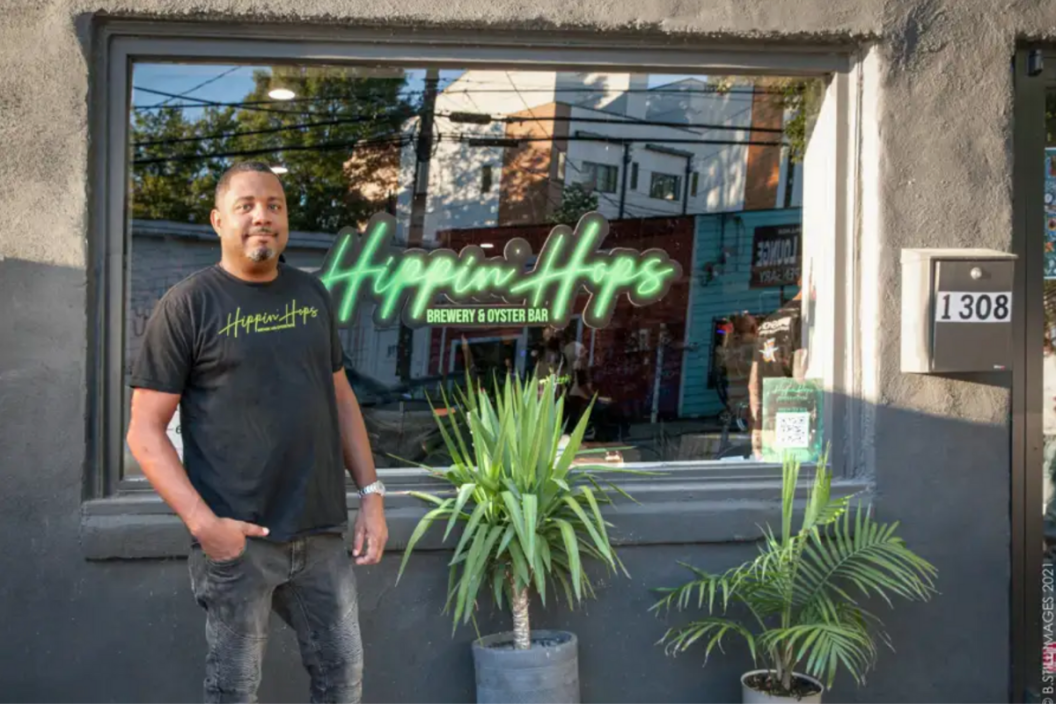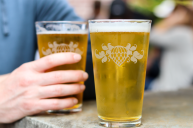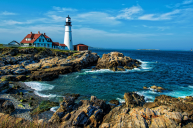The craft beer industry has a problem with a lack of diversity. A survey, done in 2019 by the Brewers Association, found that 88% of brewery owners were white. There are nearly 9,000 craft breweries in the United States. 4% of brewery owners are American Indian or Alaskan Native. 2% are Asian and Hispanic owners. That leaves 1%. 1% of craft beer owners are Black. That math isn't good, given that Blacks make up 14% of the US population.
Craft Beer and Diversity
Math, shmath. Don't tell Black Atlantans that it's not possible to start a brewery. "We thought it'd be cool to start a Black-owned brewery one day, " says William Teasley, one of the founders of Atlanta's Khonso Brewing. "Let's try and make it." And so they tried and they made it.
"I'm a mortician by trade," notes Clarence Boston, a Black Atlantan. "I wanted smooth sailing. The quality of my life was suffering." And so he started Hippin' Hops Brewery. "Everyone's excited here," he says of Atlanta's food and beverage scene. "We're running with that. There's diversity here and it's great." So great for Boston, in fact, that he hosts Blacktoberfest, a Black brewers festival created by Mike Potter that will take place at one of his establishments just outside the city in Stone Mountain, Georgia. It's there that he converted his funeral home into a home to make fun beers. "We got our style in our beers," he says of his sours and IPAs that he's proud of.
Music, Beer, and Camaraderie
Style comes to mind when one drinks at Atlanta's newest Black-owned brewery, Atlantucky. With a grand opening in early February, Atlantucky is owned by founding members of Nappy Roots, an alternative Southern rap group. They were the bestselling hip-hop group of 2002. Their hits include "Po' Folks," "Awnaw," and "Good Day." These days their hits include beers like Kentucky Mud Chocolate Stout, Watermelon Chiquen & Gritz, and Bluegrass Stain'd double IPA. "We love making beer," says Fish Scales, one of the owners. "And we want to keep doing something we love as we grow older." Asked about the differences between making music and making beer, Fish Scales says, "The beer belly. I don't remember a beer belly coming with the making of music."
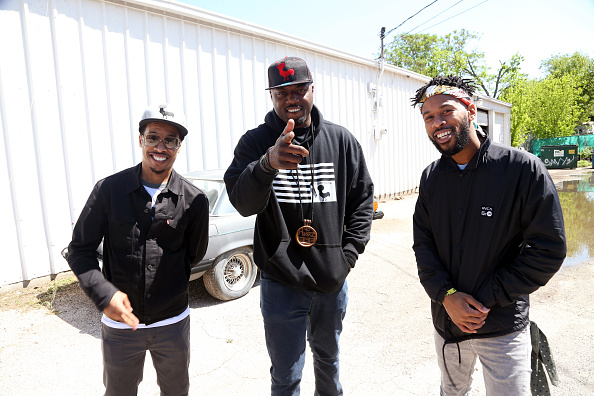
(Photo by Johnny Nunez/WireImage)
"Atlanta," Atlantucky's Skinny DeVille says, "is a great place for Black people to come get their piece of the American pie." The American pie in Atlanta is a tasty one. Boston, for example, is expanding and branching out his Hippin' Hops Brewery. Aside from his Stone Mountain location, and a taproom in East Atlanta, he's got a "brewstillery" coming to Atlanta's historic East Lake neighborhood. Khonso is also looking to open their own space sometime soon, currently raising funds to open a taproom.
"We are in the Atlanta bubble," Teasley says of the industry. It's very welcoming. There's camaraderie, cooperation, and collaboration with other brewers, Black and white, in the city. Outside the bubble, however, for Teasley, can be off-putting. "You're a novelty and you don't want to be." He doesn't want to just be a Black brewer, he wants to be a brewer, period. Khonso's beers are contract brewed and found at select bottle shops and taprooms in the area. "It's us trying to prove ourselves as being capable in this profession."
The bubble in Atlanta does continue to expand. "It's a place for us to hang out and enjoy good beers in a historic neighborhood," DeVille says of Atlantucky, nestled in the shadow of nearby Mercedes-Benz Stadium in arts-centric Castleberry Hill neighborhood. "We want to be a centerpiece of the community here."
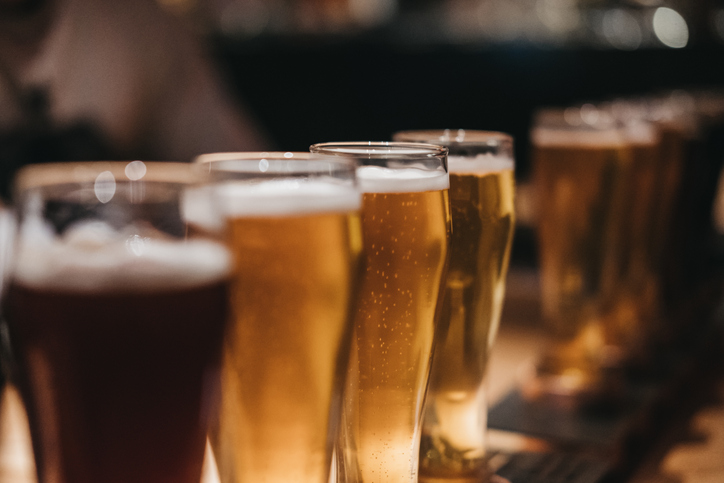
Getty Images
Communities form by the sharing of stories and, for these Black brewery owners, these stories are told through their beers. For Atlantucky it's this, according to DeVille: "We're crafty rappers making crafty beers." For Teasley, it's a way to incorporate an essence of Black excellence. With his beers, he's hoping for a connection to Black history, a connection to the diaspora, and a true engagement with the present. One of Khonso's beers (so named in honor of Khonso Im Heb, the ancient Egyptian brewer to the pharaohs and the gods of the dead), for example, is called Joyland. Joyland was based in southeast Atlanta. It was an amusement park for African Americans that opened in 1921. The Atlanta Independent said it was the only shady park where Blacks could enjoy themselves. "If someone drinks our beer," Teasley says, "I want them to be curious. Why is this beer called Joyland? I want to connect people with our beer." He's currently thinking of creating a line of Khonso beers honoring the Atlanta Black Crackers, the city's old Negro League baseball team.
To be sure, creating a beer is hard enough. Creating a brewery is harder, particularly if you're Black. Asked why there are only 1% of Black brewers in the country, Teasley answers, "The entry would be higher if the access to capital was lower." He estimates that to start a proper brewery and taproom, one needs $3 to $3.5 million. Many aspiring brewers don't have access to that kind of money. Also, the lending market continues to be riddled with systemic racism.
This, to be sure, hasn't stopped these Atlantans. "My grandma used to make wine," Boston recalls. "Mine always tasted like vinegar. So, I got a homebrew set. It turned out pretty good. It was cheaper for me to make beer than to buy it." Now, his beer is being sold all the time, paired with such tasty fixings as po-boys, lobster rolls, shrimp and grits, and more.
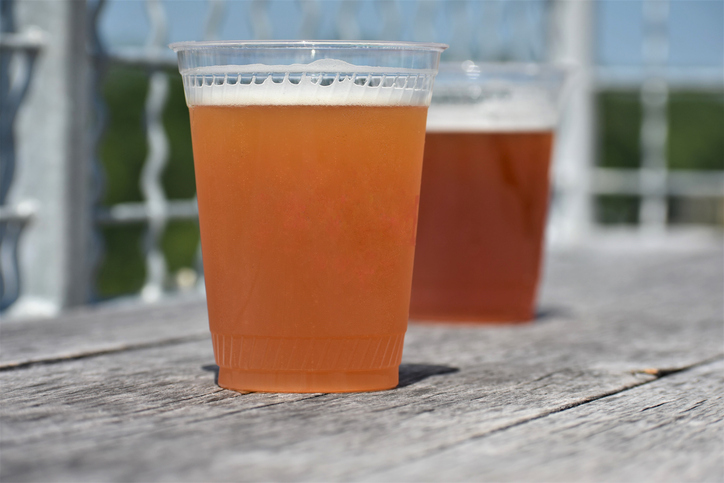
Getty Images
Atlanta's brewers have moxie. One has to have moxie to get along in the booming craft beer industry. There is seemingly a brewery opening every other week in the Atlanta metro area. The bubble continues to grow. The piece of the American pie is possible to get. The Black brewers of the city are raising that 1% all by themselves and they're eager for others to join them, hopefully with a pint glass in their hands and a dream.
READ MORE: The Top 6 Steakhouses in Georgia for Ribeyes You Only Dream Of
